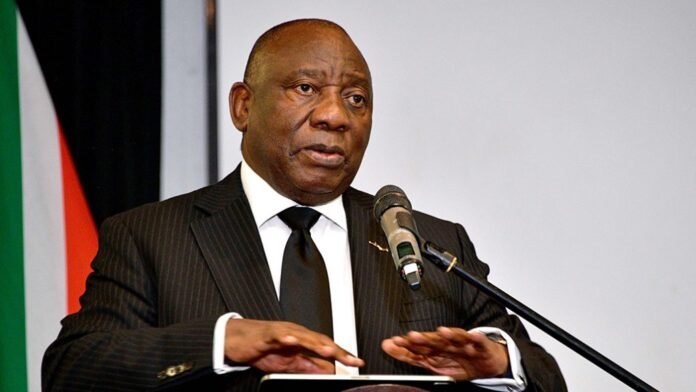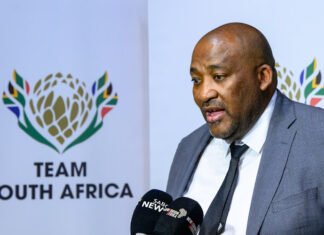In his address on Human Rights Day, President Cyril Ramaphosa reminded South Africans about the historical context of load shedding. He urged critics to consider the challenges faced by the government in providing electricity to all citizens, highlighting the fact that under apartheid, many people were denied access to electricity.
The President delivered his keynote speech at the George Thabe Cricket Pitch in Sharpeville on 21 March, following a wreath-laying ceremony at the Sharpeville Memorial earlier. This annual commemoration marks the tragic event in 1960 when 69 anti-apartheid protesters were killed in Sharpeville.
[ State’s Challenge To Bail Application Admissibility Raises Concerns In AKA And Tibz Murder Trial ]
Ironically, the commemoration program itself was affected by power cuts, which interrupted Ramaphosa’s speech on two occasions.
This occurred despite Eskom’s announcement of a suspension of load shedding for the day. The Minister of Sports, Arts, and Culture, Zizi Kodwa, explained to the crowd that the generator at the venue was taking longer than expected to start.
In defence of the government’s handling of load shedding, Ramaphosa reminded the audience that load shedding was a permanent feature under the apartheid government. He expressed confidence that the current challenges would be resolved, emphasizing the government’s clear intention to do so.
The President also highlighted the progress made in providing basic services to households, stating that nine out of ten households now have access to clean water and electricity, while eight out of ten have adequate housing.
However, despite these achievements, the government continues to face public backlash for the ongoing power outages. Since 2007, deliberate power cuts have been implemented to prevent a collapse of the national energy grid.
Ramaphosa acknowledged the frustration felt by the public but assured them that the government is committed to finding a lasting solution.
Ramaphosa also touched on other areas of progress in the country, such as improvements in maternal and infant health. He claimed that fewer women are dying during childbirth and that the infant mortality rate has significantly decreased compared to the past.
These positive developments were highlighted as the country prepares for the upcoming elections, which will mark 30 years since the first democratic elections in South Africa. Ramaphosa emphasized the importance of these elections, stating that they reflect the will of the people and are a significant achievement of the freedom struggle.
The President praised South Africa for hosting peaceful, free, and fair elections, noting that the country has come a long way since the pre-1994 era. He credited the efforts and sacrifices of past freedom fighters for the progress enjoyed today.
Ramaphosa acknowledged the significance of the Sharpeville massacre, stating that the government still remembers with sorrow the 69 protesters who were killed while fighting for their human rights.
He highlighted the injustices suffered by the black majority under apartheid, including being denied the right to live where they wanted.
During the event, the Chairperson of the South African Human Rights Commission (SAHRC), Andrew Nissen, addressed the issue of racism as the most reported human rights violation in the country.
He explained that the SAHRC deals with numerous investigations related to racism and faces both support and opposition in its work. Nissen mentioned a recent case where the commission was taken to court by a farmer who failed to provide water to his people.
He also revealed that the SAHRC has opened a criminal case against an Eastern Cape municipal manager for failing to ensure service delivery in their town.
Nissen concluded his address by appealing to Ramaphosa, whom he described as a chief defender of human rights, to respect Chapter 9 institutions. These institutions play a crucial role in upholding and promoting human rights in South Africa.
Catch up with the latest news from The Times Post on WhatsApp by following our channel. Click here to join.















